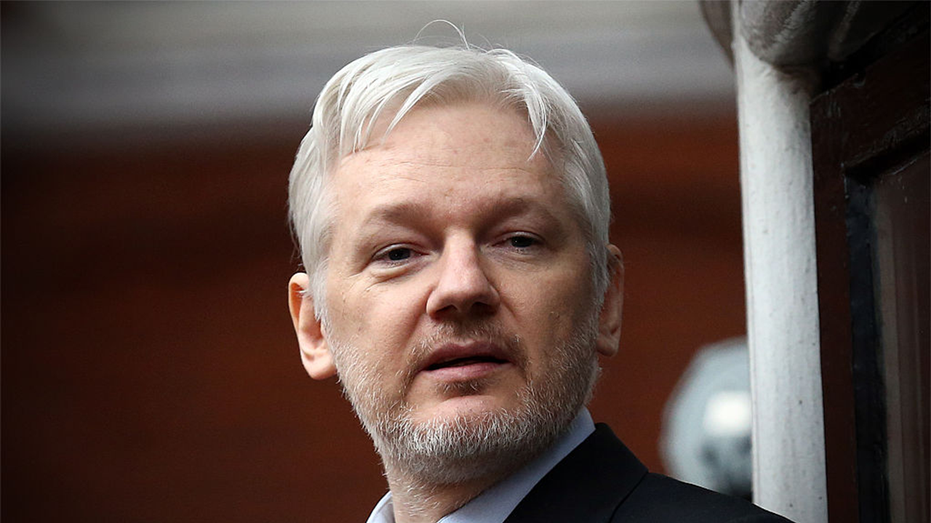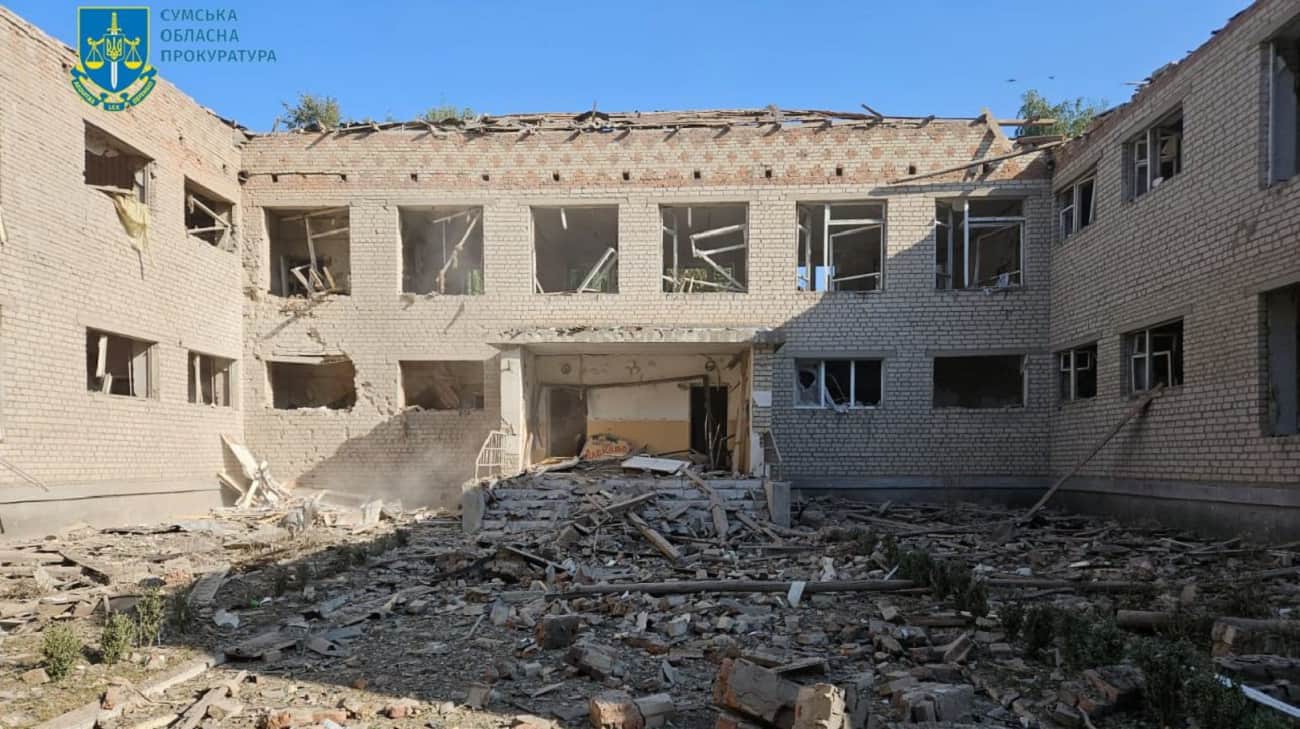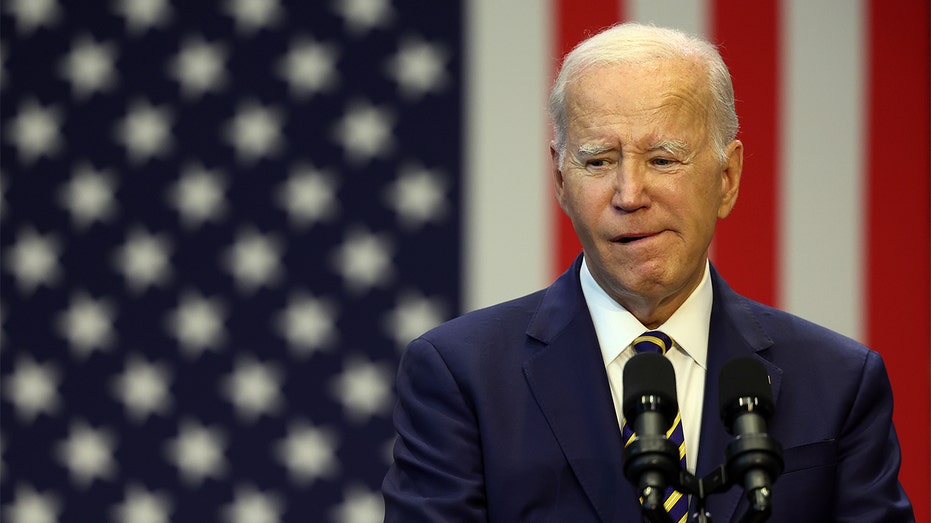Rep. Massie bringing Julian Assange's brother as guest to State of the Union
Rep. Thomas Massie invited Julian Assange's brother, Gabriel Shipton, as his guest to President Biden's State of the Union address this week.

Rep. Thomas Massie, R-Ky., is bringing WikiLeaks founder Julian Assange's brother, Gabriel Shipton, as his guest to President Biden's State of the Union address, as the Biden administration continues to pursue the prosecution of Assange for publishing classified U.S. documents.
"It is a real honor to be a guest of Rep. Massie," Shipton told Fox News Digital. "He is steadfast in his calls for the prosecution of Julian to be let go, and very clear about what’s at stake in this unprecedented indictment of a publisher for sharing information in the public interest."
The possible final appeal for Assange challenging his extradition from the U.K. to the U.S. wrapped up last month before the British High Court in London, with the Australian publisher not appearing in court due to health reasons.
Assange, 52, is charged in connection with WikiLeaks' 2010 publication of classified U.S. military documents leaked by U.S. Army intelligence analyst Chelsea Manning. Assange is facing 17 charges for allegedly receiving, possessing and communicating classified information to the public under the Espionage Act, and one charge alleging a conspiracy to commit computer intrusion.
Biden will deliver the State of the Union address on Thursday at 9 p.m.
"I hope it can bring attention to the injustice being perpetrated against Julian Assange and that maybe the president will realize there is nothing to be gained from continuing this attack against the First Amendment and discontinue it immediately so Julian can return to his wife and two young children," Shipton told Fox News Digital.
The charges were brought by the Trump administration's Justice Department over WikiLeaks' 2010 publication of cables leaked by Manning detailing war crimes committed by the U.S. government in Iraq, Afghanistan and the Guantánamo Bay, Cuba, detention camp. The materials also exposed instances of the CIA engaging in torture and rendition.
WikiLeaks' "Collateral Murder" video showing the U.S. military gunning down civilians in Iraq, including two Reuters journalists, was also published 14 years ago.
Assange has been held at London's high-security Belmarsh Prison since he was removed from the Ecuadorian Embassy on April 11, 2019, for breaching bail conditions. He had sought asylum at the embassy since 2012 to avoid being sent to Sweden over allegations he raped two women because Sweden would not provide assurances it would protect him from extradition to the U.S. The investigations into the sexual assault allegations were eventually dropped.
A U.K. District Judge rejected the U.S. extradition request in 2021 on the grounds that Assange was likely to kill himself if he was held under harsh U.S. prison conditions. Higher courts later overturned that decision after receiving assurances from the U.S. about his treatment, and the British government signed an extradition order in June 2022.
While February's hearing could be Assange's final appeal attempting to block his extradition to the U.S., a full appeal hearing could come in the future if the judges rule in his favor. If he loses this appeal, however, Assange's only remaining option would be at the European Court of Human Rights. The judges who heard arguments in the two-day hearing said they would take time to reach a verdict.
Should he be extradited to the U.S. after exhausting all his legal appeals, Assange would face trial in Alexandria, Virginia, and could be sentenced to up to 175 years in an American maximum-security prison. His supporters have argued that he would not receive a fair trial if he is extradited.
"The U.S. government’s ongoing effort to prosecute Julian Assange threatens the First Amendment rights of Americans and should be opposed," Massie said in a statement. "During his term in office, I asked President Trump to pardon Mr. Assange, and I was disappointed by his failure to do so. President Biden should drop the criminal charges currently being pursued by the Department of Justice. I am pleased Mr. Shipton has accepted my invitation to join me at the State of the Union."
The Obama administration in 2013 decided not to indict Assange over WikiLeaks' 2010 publication of classified cables because it would have had to also indict journalists from major news outlets who published the same materials, which has been described as "The New York Times problem." Former President Obama also commuted Manning’s 35-year sentence for violations of the Espionage Act and other offenses to seven years in January 2017, and Manning, who had been imprisoned since 2010, was released later that year.
But the Justice Department under former President Trump later moved to indict Assange under the Espionage Act, and the Biden administration has continued to pursue his prosecution.
Shipton's attendance at the State of the Union comes after Massie and Rep. James McGovern, D-Mass., led a bipartisan letter sent to Biden in November urging him to "withdraw the U.S. extradition request currently pending against Australian publisher Julian Assange and halt all prosecutorial proceedings against him as soon as possible."
The letter was signed by 16 lawmakers on Capitol Hill, including Reps. Marjorie Taylor Greene, R-Ga.; Paul Gosar, R-Ariz.; Alexandria Ocasio-Cortez, D-N.Y.; Rashida Tlaib, D-Mich.; Ilhan Omar, D-Minn.; Cori Bush, D-Mo.; Ayanna Pressley, D-Mass., and Sen. Rand Paul, R-Ky.
Massie has also previously sponsored bipartisan legislation to reform the Espionage Act and protect whistleblowers and journalists.
Assange's wife, Stella, has said that her husband's life is at risk every day he remains in prison and that she believes he will die if he's extradited to the U.S.
Last month, U.N. Special Rapporteur on Torture, Alice Jill Edwards, called on the U.K. government to halt the possible U.S. extradition of Assange over concerns that he would be at risk of treatment amounting to torture or other forms of ill-treatment or punishment if he is extradited. U.N. Special Rapporteur on Freedom of Expression, Irene Khan, also expressed last week that Assange's prosecution sets a dangerous precedent for investigative journalism.
In January, a group of Australian lawmakers wrote a letter to U.K. Home Secretary James Cleverly demanding Assange's U.S. extradition be halted over concerns about his safety and well-being, urging the U.K. government to instead make an independent assessment of Assange's risk of persecution.
Additional efforts have been made by lawmakers in the U.S. and Assange's home country of Australia in the last year to demand his freedom, including a vote last month in which the Australian Parliament overwhelmingly supported calling on the U.S. and U.K. Governments to end Assange's prosecution and a resolution introduced in January in the U.S. House calling for him to be released.
One of Assange's lawyers, Mark Summers, said during last month's hearing that there was evidence showing there had been a plan crafted by the Trump administration's CIA to kidnap or murder Assange while he was in the Ecuadorean Embassy and that former President Trump had requested "detailed options" to kill him.
The CIA under the Trump administration allegedly had plans to kill Assange over the publication of sensitive agency hacking tools known as "Vault 7," which were leaked to WikiLeaks, Yahoo reported in 2021. The agency said the leak represented "the largest data loss in CIA history."
The agency was accused of having discussions "at the highest levels" of the administration about plans to assassinate Assange in London and allegedly acted upon orders from then-CIA director Mike Pompeo to draw up kill "sketches" and "options." The CIA also had advanced plans to kidnap and rendition Assange, and had made a political decision to charge him, according to the Yahoo report.
While he was in the embassy, the CIA was exposed for spying on Assange and his lawyers. A judge recently ruled that a lawsuit brought against the CIA for spying on his visitors can move forward.
Assange is the first publisher to be charged by the U.S. government under the Espionage Act, and many press freedom groups have argued that his prosecution is intended to criminalize journalism.
In 2022, the editors and publishers of U.S. and European outlets that worked with Assange on the publication of excerpts from the more than 250,000 documents he obtained in the Cablegate leak – The Guardian, The New York Times, Le Monde, Der Spiegel and El País – wrote an open letter calling for the U.S. to drop the charges against Assange.



